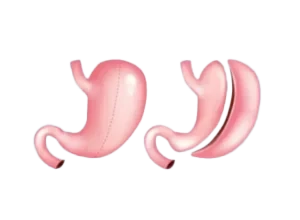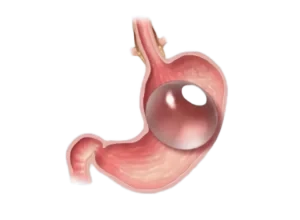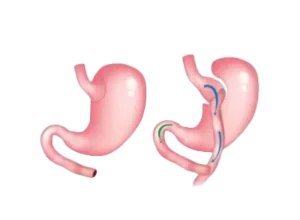Barıatrıc Surgerıes
- Obesity Surgery
- Sleeve Gastrectomy
- Gastric Balloon
- Gastric Bypass

Obesity and Metabolic Surgery
Dr. Yahya Özel is an experienced general surgeon specializing in bariatric surgery, hepatobiliary disorders, endocrine surgery, abdominal hernias, and oncological procedures. He graduated from Istanbul University, Faculty of Medicine in 1990 and completed his general surgery residency at Haydarpaşa Numune Training and Research Hospital (2001–2006). He later received advanced surgical training at Tokyo University Hospital, Japan, under distinguished experts Prof. Makuuchi and Prof. Kokudo.
Throughout his career, Dr. Özel has worked at leading institutions, including Istanbul University and Ümraniye Training and Research Hospital. He is skilled in ERCP, surgical endoscopy, and laparoscopic/robotic techniques. He also taught as a faculty member at Doğuş University. Fluent in English, he communicates clearly with international patients.
With more than 30 years of experience, Dr. Özel continues to offer safe and effective surgical solutions.

Sleeve gastrectomy, also known as stomach reduction surgery, removes 75-80% of the stomach, transforming it into a tube shape. It’s recommended for those with a BMI above 40 or 35-40 with obesity-related health issues like diabetes, hypertension, or sleep apnea, aiming to prevent future health problems.

The gastric balloon is a non-surgical weight loss method where a silicone balloon is placed in the stomach to take up space. It helps you feel full with smaller amounts of food, promoting healthy eating habits without permanently altering the stomach.

In gastric bypass surgery, a small stomach is created, and part of the small intestine is connected to it. This reduces stomach volume and limits nutrient absorption, helping patients feel full with less food and absorb less of what they eat, aiding weight loss.




Gastric Sleeve Surgery is a type of operation performed in patients with BMI 35 and above. Gastric Sleeve Gastrectomy is an operation performed through laparoscopy by entering through 4 holes through the abdomen. This surgery results in the removal of 3/4 of your stomach.
Since sleeve gastrectomy is an operation performed by laparoscopic method, it is classified as comfortable surgery. Although the risks of gastric sleeve surgery are not high, there are risks related to leakage, bleeding, embolism and anaesthesia.
Sleeve surgery takes less than 1 hour on average. After the operation, the person is discharged on the 3rd day after 2 nights in the hospital. The patient returns to his social life without any problems after the hospital process.
The pain experienced after surgery is gas pain. There is no organ pain. Walking 4 hours after the operation will help you get rid of the gas and your pain will disappear in a short time.
After gastric sleeve surgery, patients are able to meet their personal needs by the 4th hour. After discharge, they can return to daily life without any problems.
Your nutrition processes after sleeve gastrectomy surgery are followed up under the control of a bariatric dietitian. The first 15 days after the operation, liquid is fed with liquid, the second 15 days with puree. As of the 1st month, solid nutrition is started. Patients are expected to change their old eating habits during these feeding periods.
It is of great importance for the success of stomach surgery that the patient adopts the new lifestyle, follows the diet programme that will be given to them, and regularly uses nutritional, vitamin and mineral supplements if necessary.
The treatment to be applied to the patient in type 2 diabetes varies according to the course and extent of the disease. Treatment is usually as follows; depending on the diabetes, an appropriate diet programme, an exercise programme specific to the patient’s height, weight and lifestyle, and insulin-drug therapy. In cases where medical treatments are not sufficient for the patient, surgical treatment is applied.
Surgical treatment is not suitable for every diabetic patient. The most suitable people for surgical treatment are type 2 diabetes patients. However, insulin production in the body may not be sufficient for surgical treatment as a result of having type 2 diabetes for years. For this reason, the insulin level in the pancreas should be measured before surgical treatment. Insulin level is analysed with a blood test. On the other hand, the weight of the patients is also very important. In this context, the patient’s body mass index should also be suitable for surgical treatment. In order to be suitable for surgical treatment, the body mass index should be 35 and above. However, patients who do not respond to classical medical treatment methods and whose body mass index is 30 and above can also undergo surgical treatment. Another criterion for eligibility for surgical treatment is that type 2 diabetes is not very advanced. Insidious progression of type 2 diabetes depletes insulin reserves and as a result, many damages such as organ and vascular damages occur. Successful results are achieved with appropriate treatment and surgical procedure by recognising the patient before insulin reserves are depleted.
